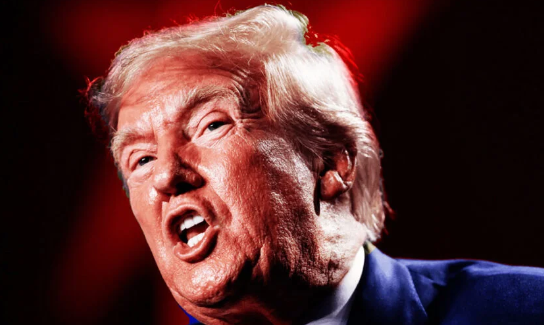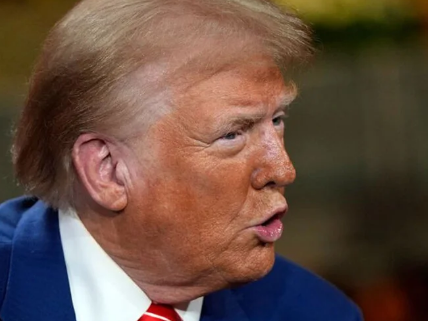
As Donald Trump’s chaotic campaign spirals into ever more outrageous territory, one question looms larger than ever: How is he still neck-and-neck with Kamala Harris in the race for the White House?
Democrats have held onto the belief that the chaotic memories of Trump’s presidency would doom his chances. Yet, despite a barrage of reckless rhetoric and bizarre claims, the race remains a statistical tie.
In recent weeks, Trump has unleashed a torrent of absurdities, from unfounded rumors about immigrants in Ohio to blaming Jewish voters if he loses. His refusal to condemn a gubernatorial candidate who labeled himself a “black Nazi” showcases not just a lack of judgment, but a profound unfitness for the presidency. Yet, astonishingly, Trump remains a formidable contender.
Michigan Governor Gretchen Whitmer has highlighted the tightness of the race, stating, “This election is going to be close. We have always known that.” Her words resonate as polling indicates this contest could hinge on the whims of just a few hundred thousand voters in key swing states like Pennsylvania, Georgia, and Wisconsin. How can this be?
Despite his controversial tenure and mounting legal troubles—including multiple felony charges—Trump’s base remains unwavering. They view him as a champion against a system they believe has failed them.
In stark contrast, Harris has proven herself a more capable leader, advocating for pragmatic solutions and emphasizing the importance of stability and integrity in governance. Yet, she continues to struggle to establish a decisive lead in the race.
Harris faces monumental challenges, not only as the standard-bearer for an administration wrestling with low approval ratings but also as a woman trying to break through the noise of a chaotic political landscape. While Trump’s inflammatory rhetoric may alienate moderates, Harris’s message of unity and progress offers a stark alternative to the chaos he represents.
Polling shows that many voters trust Trump on economic issues, often perceiving his policies as superior to those of the current administration. However, Harris has consistently pushed for policies that directly address the struggles of American families, from affordable housing to healthcare access. Her focus on creating an “opportunity economy” demonstrates a commitment to empowering citizens rather than stoking divisions.
As Trump amplifies his economic proposals, Harris must sharpen her messaging to convince voters that she understands their needs. She has made strides, but the stakes are high. If she can clearly articulate a vision that resonates with the electorate, she can not only challenge Trump’s chaotic narrative but also assert her role as a competent and trustworthy leader.
The troubling reality is that, despite his flaws, Trump’s chaos hasn’t driven voters away as expected. Instead, his relentless focus on economic and cultural grievances has solidified a loyal base. If Democrats fail to galvanize their support and highlight Harris’s capabilities, the maddening specter of Trump could once again loom over the White House.
Ultimately, the upcoming election is a referendum on leadership. Harris has shown she can navigate complexity with competence, while Trump has descended into a quagmire of divisive rhetoric. If voters can recognize this contrast, they may very well choose a future rooted in progress over one steeped in chaos.



